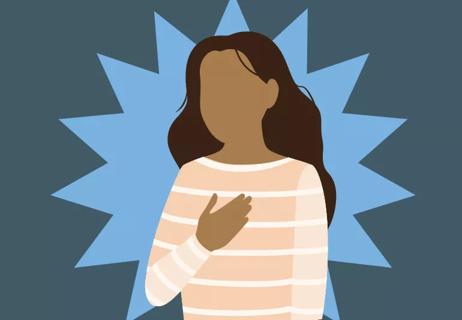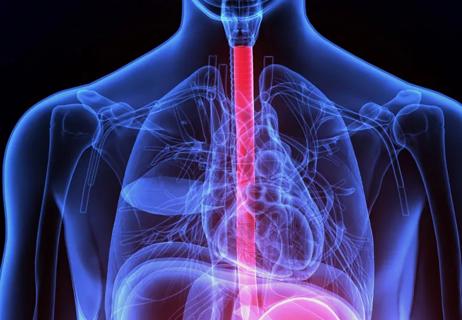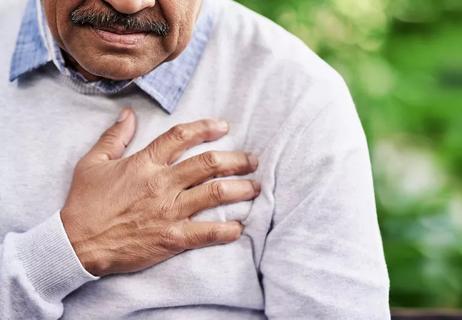Don’t ignore chest pressure that lingers and can’t be explained

Sounding the alarm over a body ache isn’t what you generally do … but this is a pain in your chest. A terrifying two-word combo — heart attack — immediately starts creeping into your thoughts.
Advertisement
Cleveland Clinic is a non-profit academic medical center. Advertising on our site helps support our mission. We do not endorse non-Cleveland Clinic products or services. Policy
Should you be worried? Unfortunately, that’s a tough question to answer with just a “yes” or “no.” Not every type of chest pain signals a heart attack. Of course, some chest pains are warning signs of a heart attack.
So, if you’re concerned about your situation and feel a “sense of doom,” call 911. Don’t guess and gamble with your life, emphasizes preventive cardiologist Luke Laffin, MD.
With that said, let’s look at chest pain as a heart attack red flag.
Chest pain is a frequent symptom of a heart attack — and it deserves your attention, says Dr. Laffin.
A heart attack often brings an unrelenting sensation of pressure, heaviness or tightness to your chest. Many describe it as feeling like “an elephant” is sitting on top of you. As you might expect, it can be very uncomfortable.
It’s not unusual for the pain to radiate to other areas of your body, too. This can include your back, neck and jaw, and down your left arm.
“If your discomfort lasts for three minutes or more, or quickly worsens, there’s a real possibility you are having a heart attack or are about to have one,” says Dr. Laffin. “Seeking immediate medical attention may save your life.”
The chest pain may come with other symptoms, too, including:
Advertisement
Answering these questions may help you determine whether your chest pain is a heart attack or being brought on by something else.
It’s unusual for a heart attack to produce intense, focused pain. A stabbing pain of short duration is more likely to come from a bone or nerve problem (like a cracked rib or pulled chest muscle).
“This type of pain may be actually more painful than a heart attack, but it will go away fairly quickly,” states Dr. Laffin. “Chest pain from a heart attack can last 30 minutes — and sometimes longer.”
If shifting around makes your chest pain lessen or go away, odds are you’re not dealing with a heart attack. Chest pain that dwindles with positioning may instead be linked to a lung issue such as pneumonia or asthma.
“If you are having a heart attack, you will not be able to find a position that makes the pain go away,” explains Dr. Laffin. “Heart attack victims describe the discomfort as relentless.”
Acid reflux, or heartburn, can make you pretty uncomfortable. How bad can it be? Put it this way: The burning sensation from stomach acid rising into your esophagus in many ways mimics the feeling of a heart attack.
Telling the two apart can be difficult. But if popping antacids eases the pain, your issues likely started in your gut instead of your heart.
You can’t walk off a heart attack. So, if moving around makes the pain subside, it’s probably not a heart attack, reiterates Dr. Laffin. (On the flip side, look to get immediate medical care if activity suddenly makes your chest pain worse.)
Know that not every heart attack feels the same way. In fact, some people experience a heart attack and don’t even know it. These “silent heart attacks” are no less dangerous than any other kind of myocardial infarction.
But if unexplained chest pain strikes, getting checked out may be a lifesaving decision. Play it safe and call 911 unless you can quickly and confidently rule out a heart attack, stresses Dr. Laffin.
Advertisement
Learn more about our editorial process.
Advertisement

Feelings of stress or anxiety can cause an increase in hormones and a tightening of the chest muscles, which can lead to chest pain

If your provider has ruled out a serious cause, you can treat chest pain at home with antacids, inhalers or anti-inflammatory medications

Most chest pain in kids isn’t worrisome, but there are some symptoms that deserve attention

Not all chest discomfort is a symptom of a heart attack

Learn the common causes of chest pain, especially if you're very active

Why the condition, also called jackhammer esophagus, is missed

Knowing the difference may not be as easy as you think

If you’re feeling short of breath, sleep can be tough — propping yourself up or sleeping on your side may help

If you fear the unknown or find yourself needing reassurance often, you may identify with this attachment style

If you’re looking to boost your gut health, it’s better to get fiber from whole foods